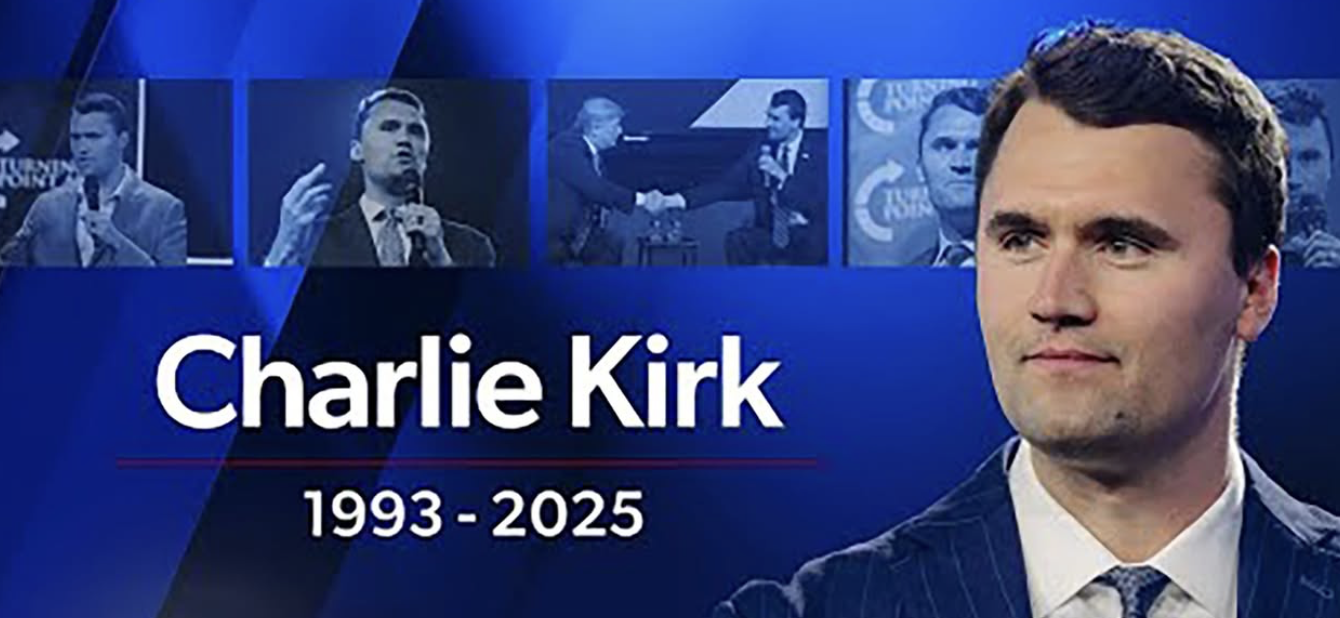In Memory of Charlie Kirk: A Call for Compassion, Clarity, and Christ

I was at work when I heard the news. Shock. Anger. Deep, bitter sadness. That’s the only way I can describe it. Charlie Kirk, a voice I respected, a man who came from a biblical foundation and stood boldly for his beliefs, was assassinated—shot down while speaking at Utah Valley University. A single, calculated bullet from a rooftop silenced a man in the middle of a message.
And just like that, everything changed.
Charlie wasn’t perfect. None of us are. But I watched his videos, I listened to his words, and I often found myself agreeing with him. He stood on principle. He came from Scripture. He believed in America and wanted better for it—not just for conservatives, but for everyone. He dreamed of unity, of bringing this fractured country together through discussion and conviction. His goal wasn’t violence or chaos—it was conversation.
And then he was assassinated.
The shooter, Tyler Robinson, a 22 years old political radical who, according to his own family, had grown more and more hateful. He brought a high-powered bolt-action rifle to a rooftop and assassinated a man who held different views than his own. That’s not justice. That’s not protest. That’s fascism.
Let me be clear: my sympathy is not for Tyler. My heart breaks for Charlie’s family, his wife, his friends, and the movement he helped lead. But my heart also breaks for the Robinsons. His father, a 27-year law enforcement veteran, helped bring in his own son. Think about that. Think about the strength, the pain, the integrity it takes to do that. And now, people are attacking the Robinson family online—as if they pulled the trigger. They didn’t. They did the right thing. And they’re grieving too.
The bullet casings had disturbing inscriptions. Some were mocking, others bizarre, and some deeply hateful. That detail struck me—not just because of the cruelty, but because it revealed the dehumanization at the heart of this act. You don’t murder someone like this unless you’ve convinced yourself they aren’t human. And in our country today, that kind of thinking is growing fast.
This isn’t just about Charlie. It’s about how we talk to each other. It’s about how we treat those we disagree with. For years now, I’ve watched people on the left label everyone on the right as fascists, Nazis, threats to democracy. And I’m not saying hate only flows one way. But I am saying this: if you treat people like monsters long enough, someone will feel justified in doing something monstrous.
Words are not violence. Violence is violence. And this—what happened to Charlie—is where dehumanizing rhetoric leads.
I posted something on social media after the shooting, quoting something Charlie once said: “You can tell a lot about a person by how they react when someone dies.” It stuck with me because the reaction online was sickening. People laughed. Memed it. Celebrated it. Some even got fired for it—and they should have. Contrast that with how President Trump responded when Ruth Bader Ginsburg died. He said, “She led an amazing life... she was an amazing woman.” That’s how adults act. That’s how people of character respond to death, even if they disagreed with someone.
I’m not here to judge anyone’s soul. That’s not my job. But I will say this: if your first instinct when a political opponent dies is to cheer, meme, or mock—it’s time to look in the mirror. Seriously. Ask yourself: Am I really on the right side of history?
You all know me. I’m an independent. I’ve got values from both sides. But I’ve seen more hatred and violent rhetoric from the left in the past five years than I ever imagined possible. Conservatives are not Nazis. Trump is not a Nazi. Charlie Kirk wasn’t a Nazi. These are Americans. Fathers. Mothers. Sons. Daughters. And the moment we forget that, we invite chaos.
What do I want to happen to Tyler Robinson? I want him to repent. I want him to accept Jesus Christ as his Lord and Savior. His days are numbered. He made his choice. He’ll face an earthly judge, and more importantly, a heavenly one. And yes—he can be forgiven. That doesn’t erase what he’s done. But it could change the destination of his soul.
This week has changed my heart. I’m mourning. I’m praying. I’m angry. But I’m also calling for something deeper: faith, dialogue, and grace. Violence is never the answer. If you disagree with someone—talk. Debate. Listen. But if your answer is to kill, or to celebrate a killing, then you are lost.
So I’ll say it as clearly as I can:
Be kind. Treat people with dignity. If you can’t be kind? Get out of the way. We don’t want your hate here.
Rest in peace, Charlie. We’ll carry the message forward.